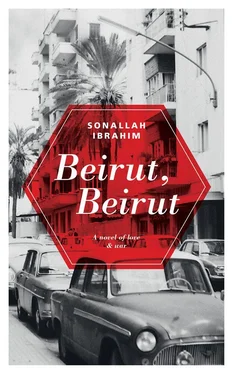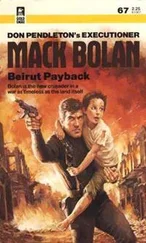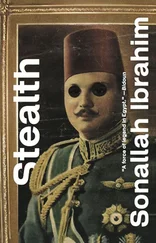I didn’t choke her, and I didn’t have my orgasm. She gathered her strength and roughly pushed me off her. She was able to free her neck from my fingers. She jumped up and stared at me in alarm, while I collapsed into my chair, breathing heavily, my limbs quivering.
She raised her hands to her neck and moved her lips, but her voice was stuck in her throat. Without caring about her appearance, she grabbed her coat and bag, and hurried to the apartment door. She opened it and rushed outside.
I listened to her footsteps on the stairs. Then I slowly got up, adjusted my clothes, walked to the door and closed it.
The sun had set, and it had grown dark more quickly than usual. I turned the light on in the living room. I walked to the library and picked up a bottle of whiskey. I wrenched off the cap and took a swig directly from the bottle.
I looked for the pack of cigarettes, and found it on the floor beside the chair. I lit a cigarette with trembling fingers and sat back down.
I smoked the cigarette down to the end and stubbed it out in the ashtray. Then I walked to my room and brought my carry-on and suitcase out to the living room. I picked up the envelope that held my manuscript and put it back in the secret compartment in my suitcase.
I felt surprisingly cold and put on my jacket. I took a mouthful from the whiskey bottle. I looked at my watch, then lit a cigarette and went back to my seat.
After a while I heard a car horn, and I walked over to the balcony. I found a taxi in front of the building. I closed the balcony door, and checked to make sure I had my passport and plane ticket in my pocket. Then I slung the carry-on over my shoulder and picked up my suitcase. I cast a final glance around the apartment, then turned out the light and left.
al-Amal :Newspaper belonging to the Phalangist Party.
al-As’ad, Kamil (1932–2010):Shiite Lebanese politician from a powerful family in Lebanon’s south. He served as speaker of the Lebanese parliament several times, including from 1970 to 1984.
al-Atrash, Sultan Pasha (1891–1982):Spiritual and political leader of the Druze tribes of Jebel Druze in southern Syria. Leader of a Druze revolt against the French in 1925.
Ali Pasha, Muhammad (r.1805–48):An Albanian soldier who came to power in Egypt in the wake of Napoleon’s invasion and expulsion. Although nominally a viceroy of the Ottoman sultan, he became powerful enough to invade the Middle East, occupying Lebanon and parts of Syria. He is known as a reforming ruler who set Egypt on an early path to modernity.
al-Manfaluti, Mustafa Lutfi (1876–1924):Egyptian author of essays and sentimental short stories.
Amal militia:Armed Shia faction in the Lebanese Civil War, which grew out of the earlier Movement of the Dispossessed founded by the Shii Imam al-Sadr.
Arab Deterrent Forces:Peacekeeping forces sponsored by Arab League countries that were deployed across Lebanon starting in November, 1976. Their purpose was to take over peacekeeping duties from the Syrian Army, although Syria continued to provide the majority of ADF troops in Lebanon.
Bamahaneh:The official, semi-independent magazine of the Israeli Defense Forces.
bey :A term of respect, originally Turkish, roughly equivalent to “lord”. Frequently used to refer to dignitaries and men of high position in the Ottoman Empire, but now mostly obsolete and old-fashioned-sounding in the Arab world. “ Ya bey ” is used when addressing someone directly as a bey .
blue bone:Slang derogatory term for a Christian.
Capucci, Hilarion (1922–) Greek Catholic bishop born in Aleppo. An outspoken supporter of Palestinian rights and an opponent of Israel.
Chamoun, Camille (1900–87):President of Lebanon from 1952 to 1958, when his illegal attempt to secure himself another presidential term led to a brief civil war, a deployment of American Marines, and his eventual removal from office. In 1975, the grant of exclusive fishing rights off Sidon made to a private company he headed, a move that was strongly protested by local (mostly Muslim) fishermen, was one of the catalysts for the outbreak of the civil war a few months later. He was a founder of the National Liberal Party, which was part of the rightist, Christian-dominated Lebanese Front.
Darwish, Sayed (1892–1923):Egyptian composer widely considered the father of popular music in the Arab world.
Deir Yassin:Name of a Palestinian village near Jerusalem where 107 Palestinian Arab inhabitants were massacred by the radical Israeli paramilitary group Irgun in 1948.
Deuxième Bureau:The Lebanese government’s bureau of military intelligence.
Druze:A secretive Muslim sect which traditionally has been considered heretical by other Muslim groups. The Druze, under the leadership of Kamal Jumblatt, generally allied with the leftist Lebanese National Forces (LNF) during the civil war.
Eddé: Raymond (1913–2000):Moderate Maronite leader.
Fairuz (1935–):Professional name of a Lebanese singer beloved across the Arab world.
Fatah:A Palestinian nationalist group founded by Yasser Arafat in 1959, which soon joined the PLO, and eventually came to dominate it.
fedayeen :Literally, “those who sacrifice” or “those who redeem”. A term that came to mean Palestinian militants and unofficial fighters.
Feisal (Emir Feisal bin Hussein bin Ali bin al-Hashimi) (1883–1933):Oldest son of the sharif of Mecca and a leader of the Arab Revolt against Ottoman rule during World War One. After the war, the Emir Feisal was the king of the short-lived Arab Kingdom of Syria, before becoming the first king of the newly established monarchy of Iraq from 1921 until his death twelve years later.
fellah(a) :Egyptian term for the traditional peasant class in rural Egypt along the Nile.
Frangieh, Suleiman (1910–92):Maronite politician and head of a powerful clan from Zgharta near Tripoli. President of Lebanon 1970–76.
Gemayel, Bashir (1947–82):Youngest son of Maronite leader Pierre Gemayel, and militia commander of the rightist, Christian Lebanese National Forces during the civil war.
Gemayel, Pierre (1902–84):Founder of the Phalangist Party and patriarch of the Gemayel clan, one of the strongest Maronite clans during the civil war.
ghutra :A white cotton headdress generally worn by men from the Gulf countries. Can be worn with or without the black cord known as the ’iqal .
Green Line:The dividing line (drawn as a green line on maps) separating West and East Beirut, strongholds of the Muslim and Christian sides in the civil war.
Guardians of the Cedars:Strongly anti-Palestinian, Lebanese ultra-nationalist militia.
Gur, Mordechai (1930–1995):Israeli general and politician who served as chief of staff of the Israeli Defense Forces from 1974 to 1978.
Habash, George (1926–2008):A Palestinian militant and leader of the Popular Front for the Liberation of Palestine, a Marxist organization that rivaled the PLO and was more closely allied with the Soviet Union.
Haddad, Saad (1936–84):Defecting Lebanese military officer who formed the South Lebanon Army to defend Christian enclaves in southern Lebanon and collaborated closely with Israel.
Читать дальше












